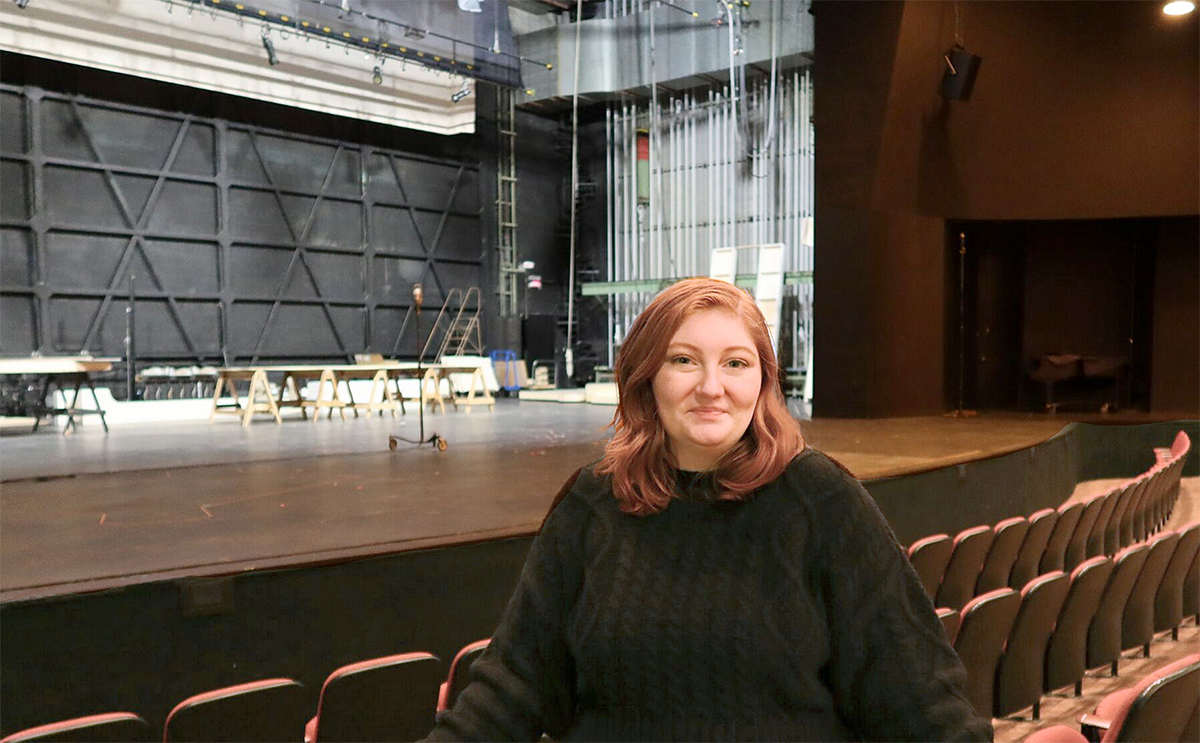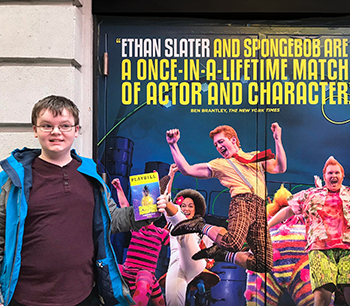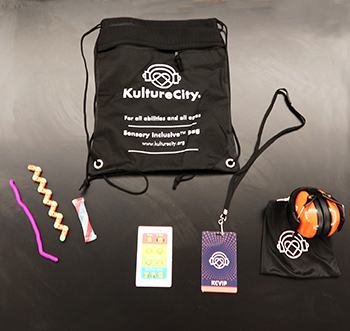Sometimes, a heart tug is the strongest catalyst for change. It was for Taylor Lang '24, whose love for her brother and the arts motivated her to launch a BW program focused on sensory accessibility and inclusion in theatre.

Thanks to Lang, BW theatres are becoming certified sensory-inclusive venues offering accommodations that can benefit individuals with autism, dementia, PTSD and other conditions. Sensory-inclusive accommodation is part of a growing trend of events, venues and programs that provide welcoming environments for people whose brains have trouble receiving and responding to information that comes in through the senses.
Baldwin Wallace's first production offering sensory-inclusive resources is "Measure for Measure," April 17-21, at the Kleist Center for Art & Drama. Participants needing accommodations for this or other theatre performances in Kleist that are sensory inclusive can receive noise-reducing headphones, fidget tools and a social story offering a step-by-step description of what participants can expect to experience at the production.*

For Lang, a stage management major, taking a leadership role in bringing sensory inclusivity to BW theatre is a triumph melding personal and professional aspirations.
"The implementation of this program is dear to my heart. My younger brother is autistic, so I have been immersed in the autism community since I was young. I love going to see shows, but sometimes it can be hard for us to go as a family because we don't know if his needs are going to be compatible with a venue or a specific show," explained Lang, whose hometown of Hillsborough, New Jersey, is about 50 miles from the Broadway lights of New York City.
"Certain elements of a show — like crowds in a lobby, loud noises and strobe lighting — can be overwhelming or even painful to individuals with sensory sensitivities or a sensory processing disorder. Appropriate accommodations can aid in their enjoyment of theatre," she added.
Lang went on to say that when she was in high school, she started volunteering for the Theatre Development Fund (TDF) Autism Friendly Performances program in New York City. TDF buys every ticket in the theatre for a certain performance and offers them to families affected by autism and other special needs.

"Over the past several years, I have had the pleasure of welcoming families to their first sensory-inclusive theatrical experiences through TDF. BW puts on such amazing shows that I would love to have our audience be expanded to people needing sensory accommodations," remarked Lang.
Lang's initiative is her senior thesis for the BW Honors Program.
"Through my research, I found out about a national organization called KultureCity, which provides guidance and support in implementing sensory-inclusive accommodations for organizations. Through our partnership with KultureCity, our front-of-theatre house staff will receive training, and the University will receive signage and supplies that align with sensory accommodation. In addition, BW's Kleist Center is now certified as a sensory-inclusive venue," she noted.
"Securing funding was a key part of my learning experience. I submitted and received grants from both the Honors Program and Women for BW, as well as Orange Effect Foundation, an organization that focuses on providing grants to children who need speech therapy or equipment," Lang acknowledged with appreciation.

"I've gained so much from this project, including how to be an advocate for the neurodivergent and disabled communities. Opportunities like this prepare me for my career by allowing me to do a deep dive into a subject where there isn't a lot of professional research. As a stage manager, I will know how to incorporate accessibility into the rehearsal room and performance space," said Lang.
"I have a passion for this initiative and hope to create a strong and lasting program that will benefit our university for years to come. When we make a space more accommodating to a certain community, it usually ends up being more accommodating to all," emphasized Lang.
*Individuals can request a sensory bag from a house manager when they arrive for the show.